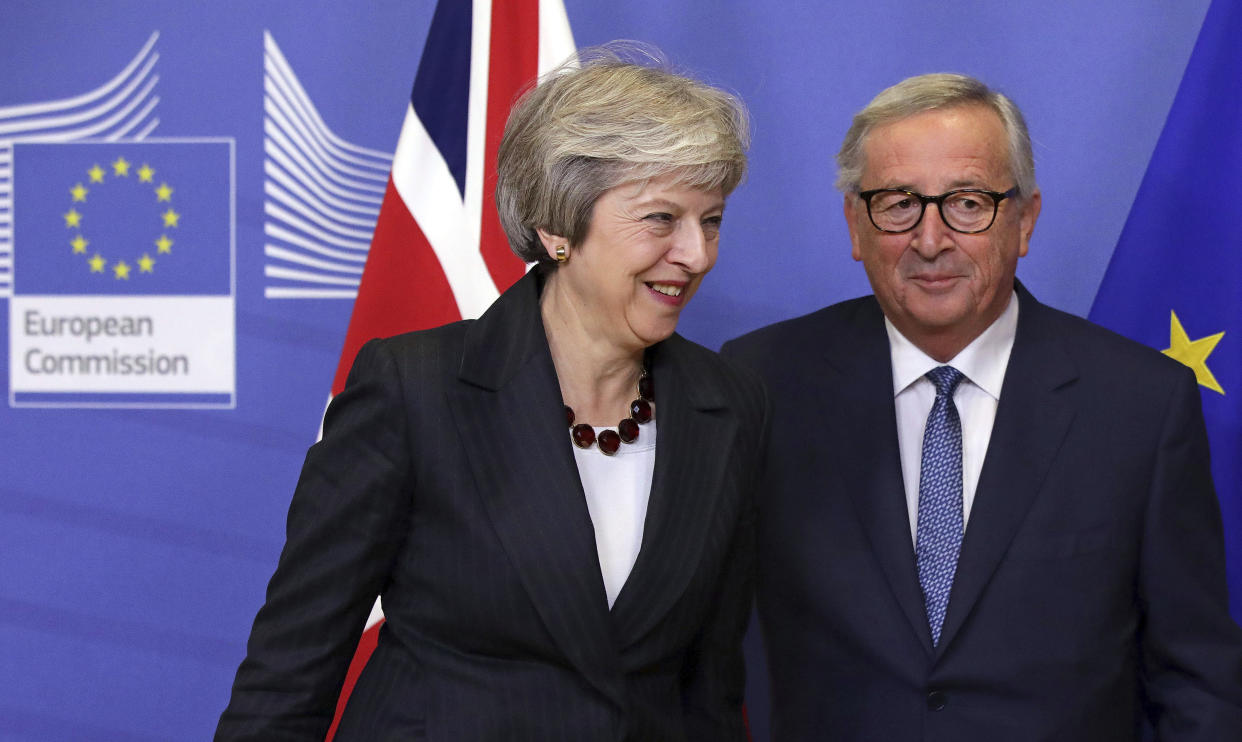'26 pages of waffle': Corbyn savages May's agreement on post-Brexit ties with EU
Jeremy Corbyn has dismissed Theresa May’s agreement on post-Brexit ties with the EU as ’26 pages of waffle’.
The Prime Minister told MPs that Brexit is ‘within our grasp’ after agreeing the text of the ‘political declaration’, which outlines the future relationship between Britain and the EU after the UK leaves.
The text has been widely criticised for its lack of detail, which defers a number of crucial decisions until the post-Brexit transition period.
Speaking in the Commons, the Prime Minister emphasised that the deal would end free movement and the jurisdiction of the European Court of Justice.

During a heated exchange the Labour leader responded with a stinging attack, calling it ‘the worst of both worlds’.
“What on earth has the Government been doing?” he said.
“This is the blindfold Brexit we all feared – a leap in the dark.”
What’s the latest?
A beefed-up version of the ‘political declaration’ was leaked today following a meeting between the PM and the European Commission President last night.
A shorter version of the declaration was published last week along with the draft withdrawal agreement.
Mrs May and European Commission President Jean-Claude Juncker met to finalise the text, which sets out the UK and EU’s shared intentions for issues including trade and security.
European politicians were shown the document today and it was swiftly passed on to the press.

Theresa May briefed her Cabinet on the contents over the phone and made a statement outside number 10, in which she said the deal ‘delivers on the vote of the referendum, it brings back control of our borders, our money and our laws and it does so while protecting jobs, protecting our security and protecting the integrity of the United Kingdom’.
What’s in the agreement?
The 26-page document kicks the can down the road on a number of crucial details about alignment between the UK and the Union.
Much is left to be resolved during the transition period, set to end on 31 December 2020.
The text pledges a ‘trading relationship on goods that is as close as possible’ – a noticeable step-down from the ‘frictionless trade’ previously promised by the Government.
But the 26 pages are vague on exactly how customs arrangements will work after Brexit.

The document commits to seeking ‘technical solutions’ to minimise border checks, particularly between Ireland and Northern Ireland.
This is seen as a move to earn support among Eurosceptics, including Boris Johnson and Jacob Rees-Mogg, who have insisted numerous times that a hard border in Ireland can be avoided by using technology.
HMRC has warned that hard Brexiteers’ technology plans would cost £20 billion a year to implement, and a number of experts have said that the systems will not be ready in time.
The deliberately vague wording will make the agreement easier to sell to discontented MPs, who are concerned about handing over too much power to Brussels.
What have people said?
In a major blow to Mrs May Brexiteers have already poured cold water over the plans.
Prominent Eurosceptic Iain Duncan Smith said that the mention of possible technical solutions to the Irish border problem were not sufficient to stop him and his colleagues from voting down the deal in Parliament.
Brexit-backing former Cabinet minister Priti Patel said: “Everything the EU wanted from the negotiations has ended up in the withdrawal agreement, which is a legally enforceable international treaty.
“Everything the UK wanted has been put in an unenforceable, meaningless declaration. And it’s cost us £39 billion. This is a costly surrender by the UK Government.”
Labour has been similarly unsupportive, saying the deal fails the six Brexit tests they are insisting on to support an agreement.
Theresa May claims to read out Labour’s six tests, missing out crucial parts and missing some entirely. Here they are and to be clear as @jeremycorbyn said, this deal fails them and we will vote against. pic.twitter.com/bxdHM1IMHd
— Labour Whips (@labourwhips) November 22, 2018
Business leaders have offered a glimmer of hope. The CBI’s deputy director general Josh Hardie said: “It appears that we’re on the cusp of a much-needed agreement. This shows a deal can be done and businesses across the continent will be watching this weekend’s EU summit closely.
“The progress made is a credit to both sets of negotiators. But hard work lies ahead. A 20-page vision needs to become a 2,000-page agreement that secures trade and jobs before the spectre of no deal can be put to rest.”
What happens next?
Theresa May will head back to Brussels at the weekend for a special summit where the EU27 leaders and the PM hope to formally agree the withdrawal agreement and the political declaration.
Back in the UK, the agreements will be put to Parliament for a ‘meaningful vote’ where MPs will be able to express their approval – or otherwise – for the deal.
So far more the 80 Tories have publicly said they will vote it down. The DUP looks likely to withdraw their support and Labour MPs will be whipped to vote against.
So it’s highly unlikely the Commons will vote in favour, and it is unclear what will happen afterwards.


